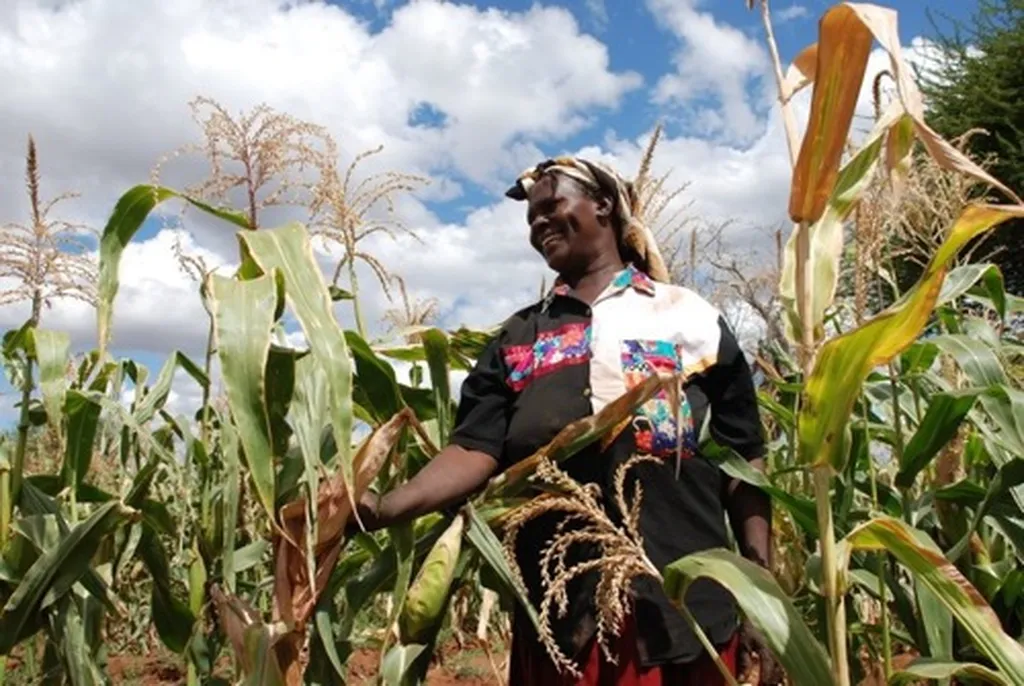In the heart of Kenya’s Kiambu County, a groundbreaking study is unfolding, one that could redefine how we approach agriculture in drought-prone regions. Emmanuel Ehinmitan, a researcher from the Department of Molecular Biology and Biotechnology, has been delving into the microscopic world of methylotrophic bacteria, uncovering potential game-changers for maize cultivation under severe drought conditions.
Ehinmitan and his team isolated 100 bacteria from the rhizosphere of maize plants, identifying them through 16S rRNA gene sequencing. The focus was on methylobacteria, known for their ability to use methanol as their sole carbon source. Among these, two strains, K19 and K2, stood out for their exceptional plant growth-promoting and drought-tolerance properties.
The researchers subjected these bacteria to varying levels of osmotic stress using polyethylene glycol (PEG) 6000. They found that strains K19 and K2 produced significant amounts of gibberellic acid (GA) and indole acetic acid (IAA), crucial for plant growth. Moreover, strain K2 demonstrated superior exopolysaccharide (EPS) production, a key factor in enhancing soil structure and water retention.
“These bacteria are like tiny bodyguards for the plants,” Ehinmitan explained. “They not only help the plants grow but also protect them from the harsh effects of drought.”
The in planta tests revealed even more promising results. Under drought conditions, maize plants inoculated with K2 and K19 showed remarkable improvements. The combination of both strains led to a 42.0% increase in shoot dry weight, a 46.2% increase in root dry weight, and a 65.8% increase in plant height compared to uninoculated controls.
The implications for the agricultural sector are substantial. With droughts becoming more frequent and severe due to climate change, finding sustainable and cost-effective ways to enhance crop resilience is crucial. These bacterial strains could potentially be developed into bioformulations, providing farmers with an eco-friendly tool to combat drought stress.
“This research opens up new avenues for developing drought-tolerant crops,” Ehinmitan said. “It’s a step towards securing food production in the face of climate change.”
The study, published in the International Journal of Microbiology (known in English as the International Journal of Microbiology), highlights the potential of methylotrophic bacteria as biostimulants. While further field trials are needed to validate these findings, the results are a promising start.
As we grapple with the challenges of a changing climate, research like Ehinmitan’s offers a glimmer of hope. By harnessing the power of microorganisms, we might just be able to cultivate a more resilient and sustainable future for agriculture. The journey from lab to field is long, but every step brings us closer to a world where crops can thrive, even in the driest of conditions.

